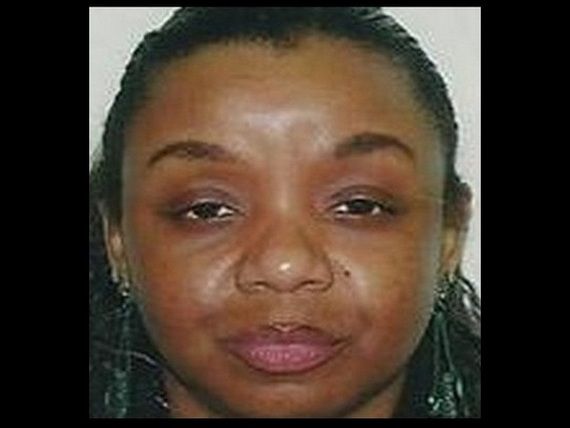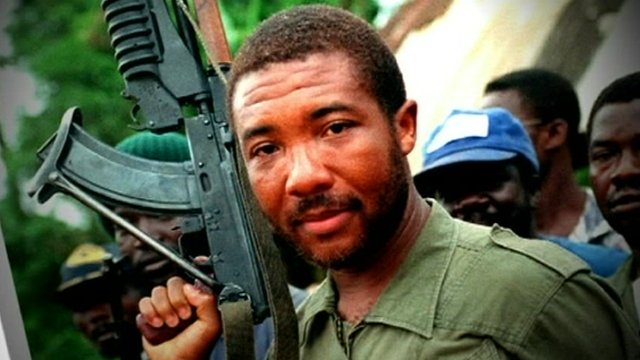Charles Taylor says prosecution ‘paid witnesses’
Charles Taylor: “Witnesses were paid, coerced and in many case threatened with prosecution, if they did not co-operate”
Former Liberian President Charles Taylor has accused the prosecution of paying and threatening witnesses in his war crimes trial.
Taylor, who was convicted last month, also told judges in The Hague he was “no threat to society”.
It was the 64-year-old’s last chance to speak at the international court before he is sentenced later this month.
Taylor was found guilty of aiding and abetting rebels in Sierra Leone during its civil war.
In its landmark ruling last month, the Special Court for Sierra Leone found Taylor guilty on 11 counts, relating to atrocities that included rape and murder.
The prosecution wants an 80-year prison term, which the defence says is excessive.
‘Corrupting role’
Delivering his statement from a witness box on Wednesday, Taylor – who insists he is innocent of all charges – said money had played a “corrupting, influential, significant and dominant role” in his trial.
Analysis
Mark Doyle World affairs correspondent, BBC News
For a 64-year-old man facing the possibility of spending the rest of his life in jail it was a remarkably composed performance.
Taylor calmly set out what he said was the “political context” of his plight – and even politely excused the judges for perhaps not understanding it.
The context was a “conspiracy” led by the former US President George W Bush. It was carried out by the President’s “attack dogs” – members of the prosecution who used to work for the various security arms of the Washington administration.
Taylor once again declared his innocence – he would never support rebels who committed atrocities. He had tried to bring peace, not war, to Sierra Leone.
The prosecution had earlier referred to the two faces of Charles Taylor – a man who talked of peace but in fact waged war. We saw the calm and reasonable face today.
Nothing the judges have said so far indicates they believe that side of Charles Taylor’s story.
“Witnesses were paid, coerced and in many cases threatened with prosecution if they did not give statements,” he said.
He also questioned why former US President George W Bush, who he alleged had admitted to ordering torture, was not being brought to face a court, asking: “Is he above the law?”
He said he condemned atrocities across the world, and had the “deepest sympathy” for victims in Sierra Leone, but stopped short of expressing remorse or apologising for his part in the conflict.
Later, he asked the court to consider his age when making their decision.
“I’m a father of many children, grandchildren and great-grand.
“I say with respect: Reconciliation and healing, not retribution, should be the guiding principles in your honours’ task.”
At the end of his address, Mr Taylor also congratulated one of the judges, Julia Sebutinde of Uganda, the first African woman to sit at the International Court of Justice.
‘Savage crimes’
Prosecutors have said that Taylor’s ill health and age, or the fact that he has a family, should have no impact on the sentence.
In written filings, prosecutors said a sentence of 80 years would reflect the severity of the crimes and the central role that Taylor had in facilitating them.
Taylor timeline
• 1989: Launches rebellion in Liberia • 1991: RUF rebellion starts in Sierra Leone • 1997: Elected president after a 1995 peace deal • 1999: Liberia’s Lurd rebels start an insurrection to oust Mr Taylor • June 2003: Arrest warrant issued; two months later he steps down and goes into exile to Nigeria • March 2006: Arrested after a failed escape bid and sent to Sierra Leone • June 2007: His trial opens – hosted in The Hague for security reasons • April 2012: Convicted of aiding and abetting the commission of war crimes“The purposely cruel and savage crimes committed included public executions and amputations of civilians, the display of decapitated heads at checkpoints… public rapes of women and girls, and people burned alive in their homes,” wrote prosecutor Brenda Hollis.
But defence lawyers said the recommended sentence was “manifestly disproportionate and excessive”, and that Taylor had only been found guilty of an indirect role – aiding the rebels, rather than leading them.
They said their client should not be made to shoulder the blame alone for what happened in Sierra Leone’s war.
The court should not support “attempts by the prosecution to provide the Sierra Leoneans with this external bogey man upon whom can be heaped the collective guilt of a nation for its predominantly self-inflicted wounds”, his lawyers wrote.
During the 1991-2002 Sierra Leone civil war, Taylor supported Revolutionary United Front rebels who killed tens of thousands of people.
The war crimes included murder, rape, the use of child soldiers and the amputation of limbs. In return, Taylor received “blood diamonds”.
The sentence is due to be handed down on 30 May.
Taylor is widely expected to appeal against any prison sentence and the hearing could continue for several more months.
Under a special arrangement with the international court, any prison term Taylor does receive will be served in Britain.
Source: BBC News
Stay with Sierra Express Media, for your trusted place in news!
© 2012, https:. All rights reserved.




